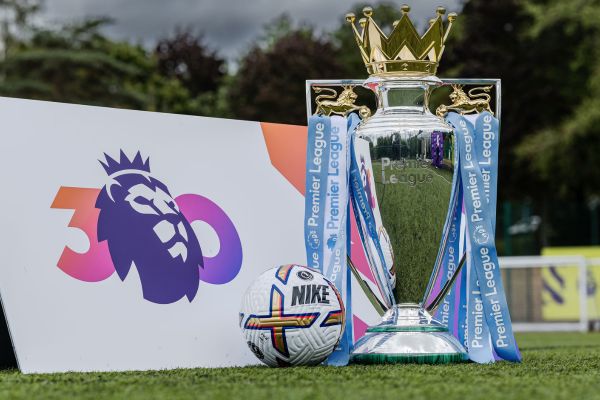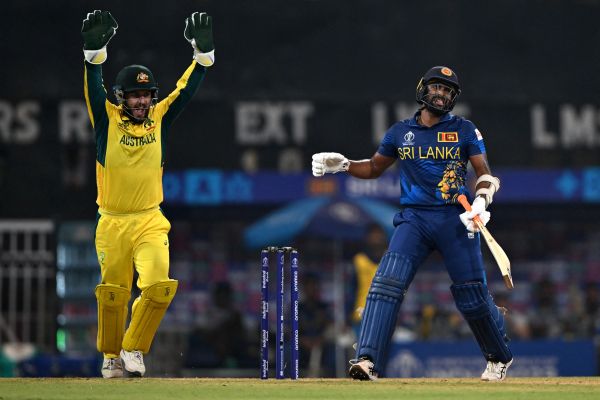The English Premier League shines as a weekly spectacle that mesmerizes potentially over 4.7 billion viewers across the planet!
Have you ever wondered why this competition is considered the most exciting in the world?
Whether it’s the impressive technical quality, the packed stadiums, or the unpredictability of results, the Premier League has captured the hearts of fans on every continent.
In this complete guide, we’ll uncover all the secrets of the competition that transformed modern football.
1. What is the Premier League?
The English top division, as we know it, was officially born on May 27, 1992, when clubs from the old First Division decided to break away from the Football League.
This revolution in English football was driven by the desire to increase broadcast revenue and modernize the competition.
Since its foundation, the English championship has evolved from a predominantly British league to a truly global competition. According to data from the Premier League’s official website, the competition regularly features players from more than 60 different nationalities, reflecting its international dimension.
What makes the elite of English football arguably the most competitive league in the world? Unlike some other major European leagues, where typically 2 or 3 clubs dominate for decades, this tournament has seen 7 different champions since its creation in 1992.
The relatively balanced distribution of TV revenue (compared to some other leagues) allows smaller clubs to sign international talent, raising the overall technical level and competitiveness of the competition.
“The Premier League is unique because any team can beat any other on a given day. This unpredictability is what makes it so special.” – Often attributed sentiment, similar to quotes by managers like Jürgen Klopp.
2. Structure and Format of the Competition
The Premier League operates on a points system, where each of the 20 teams faces all others twice (home and away), totaling 38 matches per team. Points are awarded as follows:
- 3 points for a win
- 1 point for a draw
- 0 points for a loss
The championship calendar traditionally runs from August to May, with matches taking place mainly on Saturdays and Sundays, and occasionally on Mondays and Fridays.
A unique aspect is the famous “Boxing Day” (December 26), when a full round of matches occurs, a tradition greatly appreciated by fans.
The promotion and relegation system is fundamental to maintaining competitiveness. At the end of each season, the bottom three teams in the Premier League are relegated to the EFL Championship (second division).
They are replaced by the top two teams from the Championship, plus the winner of the Championship play-offs (contested by the teams finishing 3rd to 6th).
European competition spots are distributed according to league position, usually with the top four finishers securing UEFA Champions League places. The fifth-place team typically enters the UEFA Europa League.
Another European spot (either Europa League or UEFA Conference League) is available via league position (often 6th place), but qualification routes can vary depending on the winners of England’s domestic cup competitions (the FA Cup and the EFL Cup/Carabao Cup).
3. The 20 Premier League Clubs
The English first division features 20 clubs representing the highest level of English football. Among them, the so-called “Big Six” are prominent global names:
| Club | City | Stadium | Approx. Capacity |
| Manchester United | Manchester | Old Trafford | 74,300 |
| Liverpool | Liverpool | Anfield | 61,200 |
| Chelsea | London | Stamford Bridge | 40,300 |
| Arsenal | London | Emirates Stadium | 60,700 |
| Manchester City | Manchester | Etihad Stadium | 53,400 |
| Tottenham Hotspur | London | Tottenham Hotspur Stadium | 62,850 |
(Note: Capacities are approximate and can change slightly)
In addition to these giants, the Premier League includes historic clubs like Aston Villa (European champions in 1982), Newcastle United, Everton, and West Ham United, which boast passionate fan bases and rich traditions.
In recent years, clubs like Leicester City (surprise champions in 2015/16) and others such as Brighton & Hove Albion and Wolverhampton Wanderers have emerged as challenging forces, demonstrating the Premier League’s capacity to produce inspiring stories and intense competition throughout the table.
4. Iconic Stadiums and Fan Experience
Premier League stadiums are true temples of world football. Old Trafford, known as the “Theatre of Dreams,” Anfield with its famous pre-match rendition of “You’ll Never Walk Alone,” and the modern Tottenham Hotspur Stadium are just a few examples of arenas that offer unforgettable experiences.
Watching a Premier League match live is often described as a complete sensory experience. From arriving in the stadium vicinity, with pubs full of fans singing chants, to the moment you find your place in the stands, the atmosphere is prepared to create lasting memories.
The culture of English football fans is vibrant. While dedicated away sections exist, the general atmosphere in many grounds is passionate yet often allows for a level of intermingling perhaps less common elsewhere.
According to research cited by supporter groups like the Football Supporters’ Association, this atmosphere is often valued by visitors.
Chants are a fundamental part of the experience. Each club has its own anthems and songs, many with decades of history, creating an electrifying soundscape that can influence players’ performance on the field.
5. Stars and Legends of the Premier League
Over its more than 30 years, the Premier League has been the stage for some of the greatest talents in world football.
Players like Alan Shearer (the league’s all-time top scorer with 260 goals), Thierry Henry, Cristiano Ronaldo, Wayne Rooney, and Frank Lampard have written their names into the competition’s history.
According to official data, the top five all-time Premier League goalscorers are:
- Alan Shearer – 260 goals
- Harry Kane – 213 goals
- Wayne Rooney – 208 goals
- Andy Cole – 187 goals
- Sergio Agüero – 184 goals
The Premier League has also been shaped by revolutionary managers. Sir Alex Ferguson transformed Manchester United into England’s dominant force with 13 Premier League titles.
Arsène Wenger revolutionized Arsenal with new approaches to training and diet. More recently, Pep Guardiola and Jürgen Klopp brought innovative tactical philosophies that elevated the competition’s intensity and quality even further.
Countless international players like Didier Drogba, Eden Hazard, Mohamed Salah, Erling Haaland, and Kevin De Bruyne have demonstrated that the Premier League is the perfect stage for the greatest global stars to shine.
6. How to Watch the Premier League
The Premier League is broadcast to numerous countries and territories worldwide, potentially reaching billions of people.
Broadcasting rights are held by different providers in different regions. For example:
- United Kingdom: Matches are split between Sky Sports, TNT Sports (formerly BT Sport), and Amazon Prime Video.
- USA: NBC Sports holds the rights.
- Brazil: ESPN networks are the primary rights holders, with other platforms sometimes featuring games.
- Canada: FuboTV holds the rights.
- Australia: Optus Sport holds the rights.
Always check local listings for the official broadcaster in your specific country or region via the Premier League’s official website.
Premier League match times are often staggered across the weekend to serve different global markets. Here’s a guide to typical kick-off times (UK time shown as BST – British Summer Time, GMT+1) and conversions to other zones (check local times, especially during daylight saving transitions):
| UK Time (BST) | Brazil (BRT, GMT-3) | USA (EST, GMT-5) | Japan (JST, GMT+9) |
| 12:30 | 08:30 | 07:30 | 20:30 |
| 15:00 | 11:00 | 10:00 | 23:00 |
| 17:30 | 13:30 | 12:30 | 01:30 (+1 day) |
| 20:00 (Mon/Fri) | 16:00 | 15:00 | 04:00 (+1 day) |
| Sun 14:00 | 10:00 | 09:00 | 22:00 |
| Sun 16:30 | 12:30 | 11:30 | 00:30 (+1 day) |
(Note: EST is used for example; use EDT where applicable. Conversions are approximate and subject to daylight saving time changes.)
To follow results and statistics in real-time, the Premier League’s official app (available for iOS and Android) offers instant updates, highlights, and exclusive content.
7. Fantasy Premier League
Fantasy Premier League (FPL), according to the official fantasy.premierleague.com website, is the official fantasy game of the league and boasts over 10 million participants worldwide.
Completely free, it allows you to build your ideal squad of 15 players within a budget (£100m) and earn points based on their real-life performances in matches.
For beginners, some valuable tips include:
- Balance your budget between premium stars and value-for-money players.
- Pay attention to players who take set pieces (penalties, free kicks, corners).
- Monitor team schedules to identify favorable runs of fixtures (“fixture swings”).
- Use your special chips (e.g., Triple Captain, Bench Boost, Free Hit, Wildcard) strategically, often targeting “Double Gameweeks” where some teams play twice.
There are numerous online communities dedicated to FPL, such as the r/FantasyPL subreddit (with hundreds of thousands of members), where you can discuss strategies and get advice.
Each season, the global FPL winner receives exclusive prizes, including VIP trips to Premier League matches.
8. Economic and Global Impact
The Premier League is an economic powerhouse. According to reports like Deloitte’s Annual Review of Football Finance, the league consistently generates the highest revenue among European football leagues (e.g., £5.5 billion reported for the 2021/22 season).
Broadcast rights are the main source of revenue, with deals worth billions globally. The current UK deal alone is substantial, and international rights contribute significantly.
This distribution of resources allows even clubs lower down the table, or those newly promoted, to invest in players and infrastructure.
The Premier League’s fan base is truly global, with estimates suggesting well over a billion followers worldwide, and significant interest across Asia, North America, Africa, and beyond.
Pre-season tours across different continents are a key part of the global expansion strategy. Top clubs regularly visit countries such as the United States, Australia, and various nations in Asia, attracting large crowds and strengthening their international brands.
9. How to Start Supporting a Team
Choosing a Premier League team to support can be a fun process. Here are some approaches:
- Personal connection: Perhaps you’ve visited a city, have family links, or admire a specific locality.
- Playing style: Some teams are known for attacking football (e.g., Manchester City, Liverpool under Klopp), others for defensive solidity or counter-attacking.
- Club values & history: Research the history, community involvement, and identity of different clubs.
- Favorite players: Many fans start supporting a team because they admire a particular player.
To connect with other supporters, look for official supporters’ clubs in your country or region. Most Premier League teams have branches worldwide that organize match viewings and events.
Following clubs’ official social media accounts provides exclusive content and updates. Online forums like Reddit (e.g., r/PremierLeague and specific club subreddits) are also valuable spaces for discussions.

10. FAQ
When does the Premier League season start and end?
The season generally begins in mid-August and ends in May of the following year. For example, the 2023/24 season ran from August 11, 2023, to May 19, 2024. Check the official Premier League website for future season dates.
How many teams participate in the Premier League?
The competition features 20 clubs. Each season, the 17 teams that avoided relegation remain, joined by 3 teams promoted from the EFL Championship.
How does the relegation and promotion system work?
The bottom three teams in the Premier League table at the end of the season are automatically relegated to the Championship. From the Championship, the top two teams gain automatic promotion, while the third promotion spot is decided via a play-off tournament involving the teams that finished 3rd, 4th, 5th, and 6th.
Which teams have won the most Premier League titles?
Since the Premier League’s inception in 1992 (up to the end of the 2023-24 season), the champions have been: Manchester United (13 titles), Manchester City (8), Chelsea (5), Arsenal (3), Liverpool (1), Leicester City (1), and Blackburn Rovers (1). Considering the entire history of the English top flight (including the old First Division), Manchester United holds the record with 20 titles, followed closely by Liverpool with 19.
Where can I watch the Premier League in my country?
Broadcast rights vary globally. Key broadcasters include Sky Sports, TNT Sports, and Amazon Prime Video in the UK; NBC Sports in the USA; ESPN networks in Brazil/Latin America; FuboTV in Canada; Optus Sport in Australia. Check the Premier League website’s broadcast page for the official rights holder in your location.
What time are Premier League games usually played?
Games typically take place on Saturdays (common UK kick-off times: 12:30, 15:00, 17:30) and Sundays (common UK kick-off times: 14:00, 16:30). There are also occasional matches on Monday or Friday evenings (usually 20:00 UK time). Refer to the time conversion guide in section 6, but always check official schedules for specific match times in your local zone.
How do I buy tickets for Premier League games?
Acquiring tickets can be challenging, especially for popular matches. Most clubs sell tickets primarily to official club members first. For international visitors, purchasing a club membership (costs vary, typically £20-£50 per season) is often the best first step, granting access to ticket sales periods. Tickets can sometimes be found via official resale platforms or hospitality packages, but be wary of unofficial sellers. Prices vary significantly based on the match and seat location (£30 to well over £100).
Are Premier League games broadcast live in the UK?
Not all of them. While all matches are typically broadcast live internationally, a rule in the UK prevents live television broadcast of matches kicking off at 3:00 PM on Saturdays. This “blackout” aims to protect attendance at lower league games and encourage fans to attend matches in person across the football pyramid. Matches at all other kick-off times are broadcast live in the UK.


